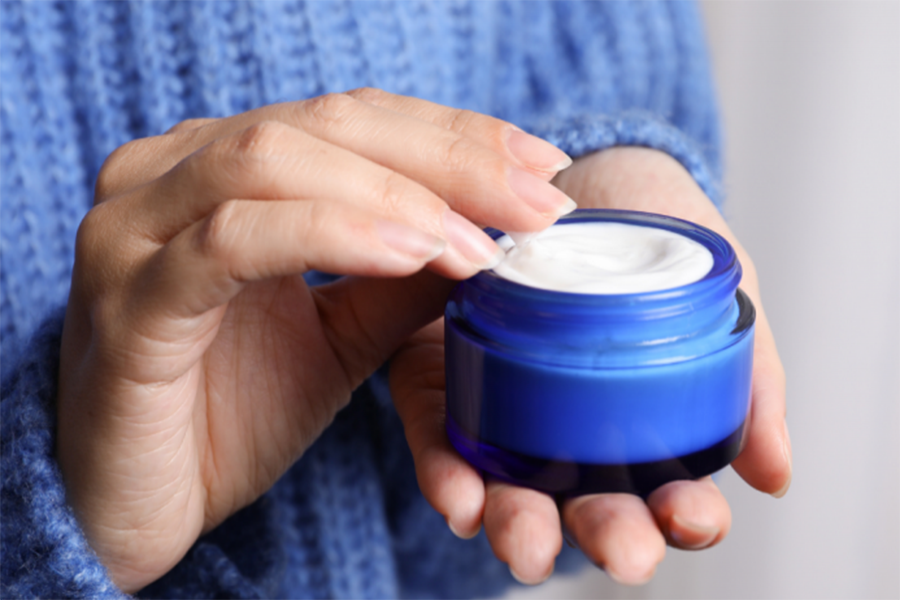Winter makes the skin dry, itchy and irritating. It is important to take care of the skin during this time of the year.
There are many products available in the market promoting healthy skin during winter; however, we must remember that not all of these may be suitable for everyone.
Nevertheless, with proper skincare ingredients, it is still possible to maintain a hydrated and glowing complexion.
How winter damages?
But why winter is so damaging to our skin? Well, it is related to the moisture in the air.
Our skin needs moisture to maintain its health and winter robs vital moisture from the air. So we start to lose water from our skin, making it dry and cracked in some cases.
To prevent that from happening, Mayo Clinic suggests using a humidifier in the room we spend the most time in. It has been shown that a cool air humidifier helps to increase the level of moisture in the air, allowing our skin to remain hydrated.
Sunscreen is needed
Another thing often overlooked in winter is sunscreen. Why? There is hardly any sun in winter, right? Well, the thing is sunscreens are actually used to protect us from UV rays, which are penetrating to earth even in cold cloudy winter months.
So, there may still be a significant amount of UV radiation outside that can age our skin. So apply a moisturising, broad-spectrum sunscreen with an SPF of 30 or higher to all exposed areas of your body before going outdoors.
Moisturisers and Cleansers
Moisturisers and cleansers are particularly very important in winter. American Academy of Dermatology (AAD) recommends that while choosing the moisturiser, cleanser or any skincare products for winter, it is better to avoid products containing alcohol and fragrances. Those substances can be harmful to the skin leading to the loss of its natural oils.
According to experts, in winter we should switch to an oil-based moisturiser if it is not already on our skincare regimen. Also, creams will be better than lotion at this time of the year. The suggestion is to apply it to the skin for at least 30 seconds in order to maximise efficacy.
Many of us use body washes or cleansers. It may sound like a good idea to apply a cleanser that is both moisturising and hydrating for the body, especially if the current cleanser is not the appropriate one.
But the question is, how do we know the cleanser currently being used is not appropriate for our skin?
Well, one way is to search the ingredients. If it contains substances like glycolic or salicylic acid which are known for their drying effect, maybe it is time for a change.
Another rule of thumb is that if there is a feeling of tightness after washing the skin with the cleanser, it is likely that the cleanser is causing disruption to the skin barrier.
So, a gentle skin cleanser, that can retain the natural oils, of the skin should be used.
Face care is also quite necessary in winter. Facial skin is particularly sensitive and it is advisable to avoid any face washes with fragrances or additives because of the drying effect.
Instead, face wash based on formulated chamomile or oatmeal may be used. For moisturisation, we should look for a cream rather than a lotion for the face. Something that says ceramides and hyaluronic acid in its ingredient list can be quite beneficial.
The lips need additional care. A moisturising balm, e.g. petroleum jelly or oil-based ointment can help heal dry, cracked lips and keep them from getting chapped. At night, a rich moisturiser on the face should be applied before going to sleep.
Extra caution during shower
We also use products during the shower. In winter, it is suggested to limit the use of bar soap and instead, go for a creamy fragrance-free, moisturising cleanser or gel. The less soap used in winter, the better. It can be applied to areas where it is absolutely necessary.
AAD’s suggestion is to limit the shower time to 5-10 minutes with lukewarm water. Within 60 seconds of coming out of the shower, a thick body moisturiser should be applied, something that contains mineral oil, lanolin, or ceramides.
Last but not the least, the skin of the hands are particularly vulnerable in the winter months. They may become chapped and sore.
To get relief from that, soap use should be minimised and a moisturising soap substitute may be used. Applying a rich layer of hand cream at night is also recommended.
Make sure you keep hydrated during the day; swap your coffee for green tea which has great antioxidant effects.
Imtiaz Ahmed completed his MBBS from Dhaka Medical College.
imtiazdmc@gmail.com


